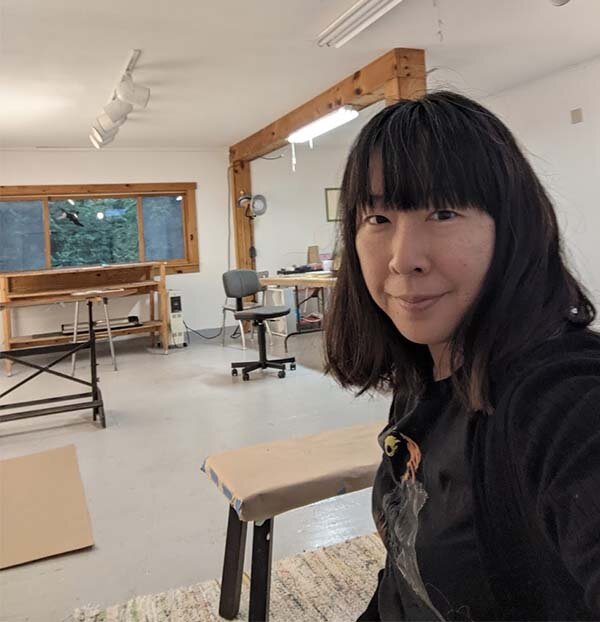Harriet Barlow Residency
2024 - Mariella Mendoza-Cardenas
Smiling at the camera, Mar glides along the lake in a kayak at dusk. An orangish Blue Mountain is in the background.
Mariella (Mar) is an Indigenous, trans artist and writer with roots in Peru. They have spent the last decade as a community organizer, camping out in Indigenous resistance spaces across the United States. A large part of their work has been creating an infrastructure of healing for community organizers engaging in direct support roles outdoors.
Thus far, Mar has co-founded the Utah chapter of Familia: Trans Queer Liberation Movement and the Utah chapter of Mijente. They have also worked as the co-Director of Uplift Climate. While living in an Indigenous-led resistance camp on the path of the Line 3 pipeline, they became a founding member of the Medic Collective at the Giniw Camp. Their perspective has been guided by their own arrest in front of a Line 3 pipeline worksite, and his experience in court as a co-defendant. Mar is also a writer and has contributed to two anthologies: New World Coming: Frontline Voices on Pandemics, Uprisings, and Climate Crisis and Somewhere We Are Human: Authentic Voices on Migration, Survival, and New Beginnings.
At the Blue Mountain Center, Mar kept the hearth welcoming and warm, skillfully maintaining roaring fires. Mar experienced, perhaps for the first time, extended time off, and how it feels to have their only job being what called him. Additionally, as they basked in an abundance of care, Mar found time to start and finish a number of essays.
2023 - Eliza Evans
A closeup shot of Eliza Evans in front of a tree. She is smiling and looking off to her right, one hand in her hair.
Born in a rustbelt steel town and raised in rural Appalachia, Eliza Evans is a climate change activist and artist. She experiments with sculpture, print, video, and textiles to identify disconnections and absurdities in social, economic, and ecological systems. Her art practice manipulates and disrupts geologic and bureaucratic space to frustrate the fossil fuel industry and realize a new collective agency form, especially through outdoor installations and interactive projects.
Her work has been exhibited at various museums and universities, including NEW INC/New Museum at LaMama Gallaria, the Bronx Museum, Missoula Art Museum, Austin Peay State University, and has appeared in the New York Times, Art in America, and Dissent. She is currently a member of NEW INC, the New Museum’s cultural incubator. Her residencies include time at the LMCC Art Center, the Art Law Program, and the National Center for Ecological Analysis and Synthesis. She holds an MFA in visual art from SUNY Purchase and a PhD in economic sociology from the University of Texas at Austin.
At BMC, Eliza explored the next phase of her ongoing work, All the Way to Hell, a participatory, monumental, site-specific land-based activist art project that converts 1000 individual gestures into a new form of environmental resistance at the intersection of property law, fossil fuel business practice, and bureaucracy. Assessing the potential scale and impact of her project, Eliza continues to imagine what large-scale disruption and noncooperation in oil and gas regions could look like.
2022 - moira williams
A snapshot of moira williams during a lunch stop of a canoe trip. They sit cross-legged among the tall grass, wearing a bright red jacket and sunglasses, and are laughing open-mouthed, looking off to their right. Two fellow residents sit at the canoes behind moira, chatting in the shade.
moira williams is a disabled Indigenous artist, cross-disability cultural activist and access doula whose work reflects the premise: access as art and “access intimacy”. Working across intersectional disability, public parks, arts and community spaces, moira weaves disability justice and environmental justice together.
Their often co-creative work merges bio-art, workshops, performance, sound, choreographed walks and gatherings. For moira, participation is about being in-service of all bodies, human and non-human: to participate is to generate empathy, abundance, vitality and transformative possibilities. moira’s on-going project with water focuses on “access intimacy” and “water intimacy” as ways forward to accessible waterfronts. In 2021, as part of Works On Water’s Tending the Edge, moira engaged NYC’s disability communities along with NYC’s Department of City Planning newest Comprehensive Waterfront Plan.
During their BMC residency, moira planted trees with fellow residents and staff, recorded the sounds of flowing water around the Center, and rescued stray canoes that were abandoned amidst a summer squall on Blue Mountain Lake.
2021 - Laurie Sumiye
A selfie of Laurie Sumiye in her BMC art studio. She smiles directly at the camera, and visible in the background are various chairs, tables, and lighting fixtures.
Laurie Sumiye is an environmental artist and storyteller who explores the interconnectedness of nature, place, and humans through her cross-disciplinary creative practice. In particular, her work sheds light on the stories of Hawaiian endangered species and their environments. She has exhibited her artwork in New York, Los Angeles, and internationally in the UK, Brazil and S. Africa, and screened her award-winning films at DOCNYC, BAMcinemaFest and PS1MoMA. Laurie was awarded fellowships with Sundance Institute and Firelight Documentary Lab.
Laurie received an MFA in Integrated Media Arts from CUNY Hunter College, BA in Art & BS in Communications from Bradley University, and studied art at Instituto Lorenzo de’ Medici in Florence and Pratt Institute in New York. Laurie returned to Hawaiʻi, where she was born and raised, to work on her first feature documentary. The project was awarded research and production funding from Pacific Islanders in Communications and Firelight Media, and selected for Good Pitch Local Hawaiʻi. Laurie currently serves as Assistant Professor of Film/Transmedia at the University of Hawai‘i-West O‘ahu.
At Blue Mountain Center, Laurie worked on A Paradise Lost, a feature documentary focused on the critically endangered Palila bird that went to court to sue to save itself from extinction. While the case remains ongoing, Palila v. Hawaii has saved hundreds of endangered American species and is taught in law schools. During her residency, she was also able to take time to immerse herself in the natural wonder and beauty of BMC.
2019 - Juan Fuentes
Juan Fuentes in his art studio. He is looking down at posters and prints on the table, and is surrounded by various art supplies and colorful decoration on the walls.
Juan Fuentes is a cultural activist, artist, teacher, and printmaker who has dedicated his work to supporting and being part of a global movement for social change for over the last forty years. Influenced by the turbulence of the movements for justice in the 1970s, his work has empowered local communities of color, addressed the need for social justice, and highlighted international struggles for liberation.
Throughout his career, Fuentes has produced silkscreen prints, linocuts, and relief prints guided by mentors and inspired by Latin American artists. His focus is the figure or portrait as a means to tell a story, elaborating on the human condition, and connecting to a collective humanity. As an elder, he continues to dedicate his art to support his family, neighbors, and community. Concerned especially with the people of the Mexico-United States Border, and with how closing the border will affect the natural elements in our shared environment, Fuentes hopes to take time at BMC to reflect on the changing world, create prints and engage in dialogue with other residents.
2018 - Rob Nixon
A portrait photo of Rob Nixon smiling at the camera, taken outside on the porch of BMC’s Grey Cottage.
Rob Nixon is the inaugural recipient of the Harriet Barlow Residency. He is a writer, professor and activist whose work focuses on the relationship between accelerating rates of environmental degradation and economic disparity — how rich and poor communities experience the impacts of climate change differently, and receive unequal access to our planet’s diminishing resources.
Throughout his career, he has sought to engage in both scholarly and public writing on environmental concerns and social movements, particularly as they pertain to the global South. As his publications, teaching and institutional initiatives attest, Nixon believes that in an era of increasingly elaborate global entanglements we need to engage seriously with the diverse genealogies of environmental studies and with the wide spectrum of what counts as environmentalism in different parts of the world, be they rich or poor, crowded or sparsely inhabited, urban or rural, religious or secular, imminently threatened or provisionally secure. His areas of particular interest include environmental justice, climate change and the interface between the environmental humanities and the public humanities.
At BMC, Rob continued work on his book Environmental Martyrdom and the Fate of the Forests about those who have lost their lives to protect forests throughout the developing world.






